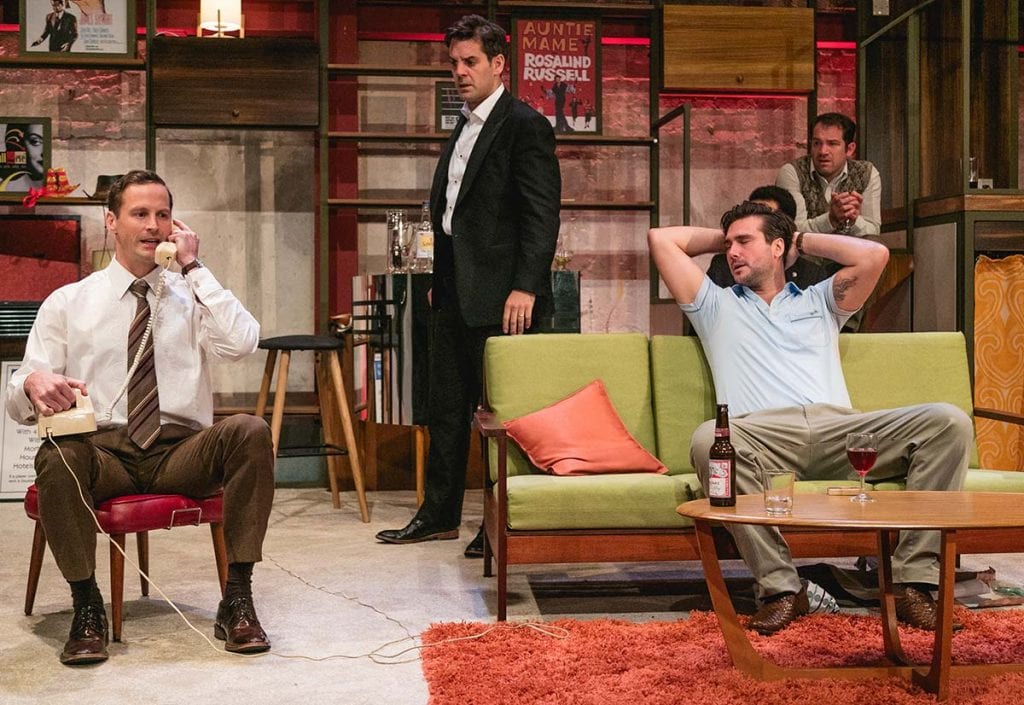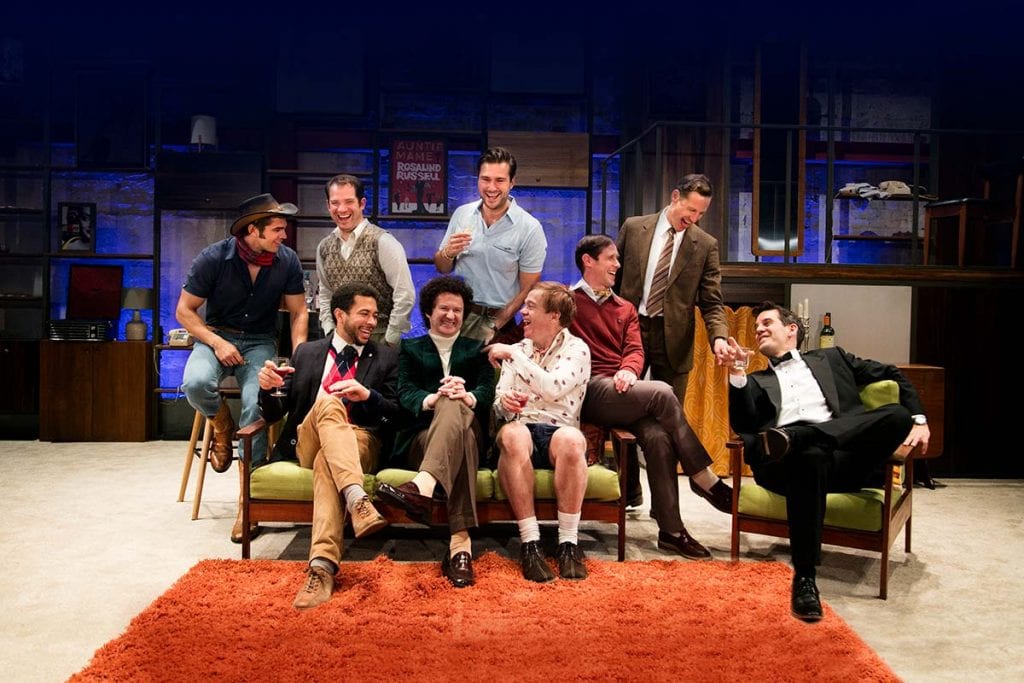No, this isn’t a play about Westlife. The Boys in the Band is about a group of gay men in ‘60s New York, gathered together to celebrate a birthday. The night begins on a high note, but things quickly start to go south, and as accusations and confessions fly across the room, they each reveal the ugly truths about the difficulties of their lives. The play is a bitter shot of reality.
In the spirit of in vino veritas, the play’s fountain of truth is the living room’s mirrored sidebar. The host, Michael (Ian Hallard), confides in Douglas (Daniel Boys), the first to arrive, about the trauma of his alcoholism, and his recent decision to drastically cut down his intake. But, given that the party develops into a trial by fire for all, Michael eventually indulges his urge to drink. His nonchalant attitude to self-medication, regaling his old routine of pill popping (one that would make Hunter S. Thompson gasp), is a mark of internalised hatred: booze and barbiturates are the modern tonics for nerves. The way intoxication is normalised is quite shocking, but drug use is commonplace in the gay community, then and now, since drugs are the tools for escapism, and this play is full of men who aren’t comfortable in their own skin.
The walls are plastered with images of Hollywood actresses: they are surrogate mothers who stare down like cold sentinels. The guests gradually filter in, including a surprise visit by Michael’s “straight” college roommate, Alan (John Hopkins), and some shirtless eye candy, a cowboy stripper (Jack Derges), who might not match the intellectual calibre of the room, but compensates for this deficiency with his impressive physique. Harold (Mark Gatiss), arrives fashionably late to his own birthday, elegantly poised in a green velvet blazer with an arsenal of acerbic quips. He is the inverse of the cowboy, a Manhattan Oscar Wilde, making up for lacking pretty plumage with his biting wit: Gatiss puts in a performance that is another feather in his resplendent cap.
There is a palpable anxiety about being openly gay, but Emory (James Holmes), mincing onto the stage, is effeminately defiant to the abundant narrow-mindedness of the world. Emory is a squealing clown, donning a cravat and a garish polka dot shirt, dispensing outrageous innuendos, but clowns are not just figures of fun, they can also be the saddest characters, and Emory is more than a ridiculous stereotype. His friction with the hyper-masculine Alan, as well as his later drunken ramblings, exposes the pain beneath his buoyant exterior: Holmes’ portrayal has great depth.
The play is packed with aggression. Michael makes racial jabs at Bernard (Greg Lockett), Harold, skilled with verbal weaponry, twists the knife in with scathing monologues, aimed at Michael, and Larry (Ben Mansfield) and Hank (Nathan Nolan) have fraught exchanges over the stability of their relationship. The veneer of civility disguises the rotten elements of discontent and rage.
Crowley hesitates to label The Boys in the Band as a play of LGBT activism, but there is great significance in the presentation of the truth behind closed doors. For all the Ibsen-esque denouement, the wild sobbing and stumbling around the stage, there is an invisible glue that binds them all together. And even though they scatter, they are still, awkwardly, a family: one that will probably meet up again to celebrate the next birthday.





